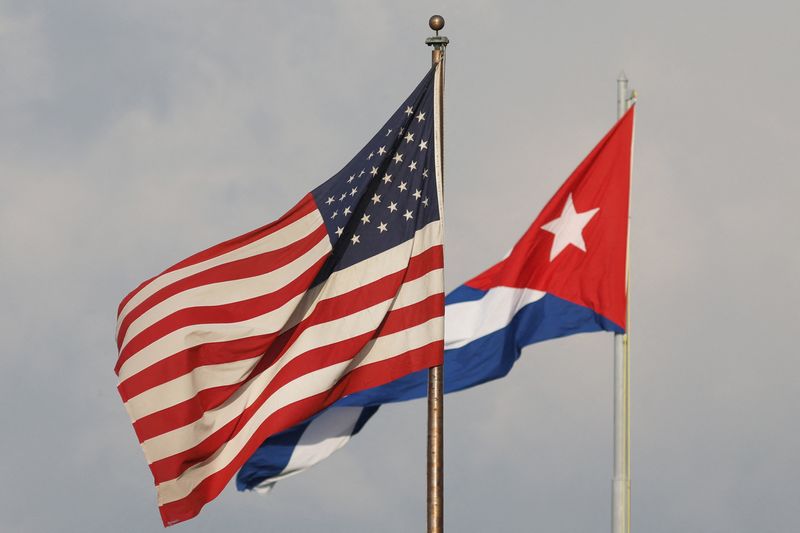Matt Spetalnick, Dave Sherwood, Daphne Psareedakis
WASHINGTON/HAVANA (Reuters) – The U.S. Treasury Department on Tuesday announced a series of regulatory changes that will allow for greater U.S. financial assistance to Cuban small and medium-sized businesses, bolster internet-based services in the country and expand access to certain financial services for Cuban citizens.
The U.S. Treasury Department said in a statement that it would allow small entrepreneurs from communist Cuba to open U.S. bank accounts and restore authorizations for so-called “U-turn transactions,” the transfer of funds sent or settled outside the U.S., both measures aimed at helping Cuban entrepreneurs make payments and get financing.
The move would also allow Cuban entrepreneurs to use U.S.-based online payment platforms, a major hurdle currently facing the island's small businesses.
“Today we take an important step in supporting the expansion of free enterprise and the growth of Cuba's entrepreneurial business sector,” a senior U.S. administration official told reporters Tuesday.
The measures aim to fulfill a long-delayed promise by the Biden administration to ease regulations to help budding Cuban entrepreneurs cope with the effects of Cuba's deteriorating economy under Communist rule.
A U.S. official who briefed reporters on condition of anonymity said that in crafting the measures, the administration had struggled to balance their objectives with a desire to avoid offending Cuban authorities.
Officials said the new measures exclude Cuban government officials, military personnel and other government “insiders” and are aimed at minimizing the resources the Cuban government can obtain from the benefits.
The Cuban government did not immediately respond to a request for comment on the policy change.
Cuba has long blamed the Cold War-era U.S. embargo – a web of U.S. laws and regulations that complicated the Cuban government's financial dealings – for its decades-long economic crisis, but in recent years it has had little choice but to open its economy to small private businesses.
Such businesses were taboo in communist Cuba for decades but are now booming on the island.
The government says that as of May, more than 11,000 small businesses, ranging from corner grocery stores to plumbing, transport and construction businesses, had been set up under the new 2021 law.
These companies now employ 15% of Cuba's workers and account for about 14% of GDP, according to Economy Ministry statistics for the second half of 2023.
Tuesday's announcement did not signal that Biden will presage a more significant easing of U.S. sanctions and other restrictions on Cuba, beyond the modest steps he has already taken since taking office in January 2021.
U.S. officials declined to comment on whether the administration was conducting a formal investigation into Cuba's continued presence on the State Department's list of state sponsors of terrorism.
“Providing this support to Cuba's private sector will create more economic opportunities on the island and help stem illegal migration from the island. Furthermore, it will allow Cubans to become self-sufficient without relying on the government for all the necessities of life,” the official said.
(Reporting by Matt Spetalnick and Daphne Psareedakis in Washington and Dave Sherwood in Havana; Additional reporting by Susan Heavey; Editing by Doina Chiacu and Jonathan Oatis)

